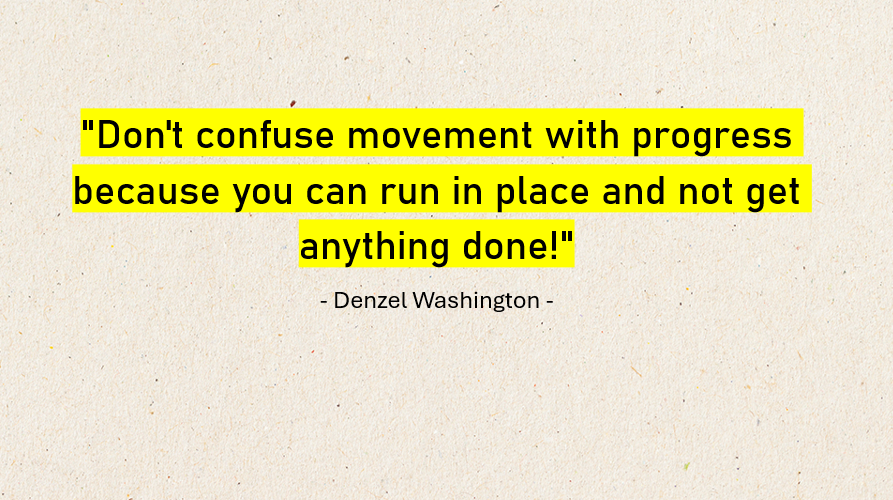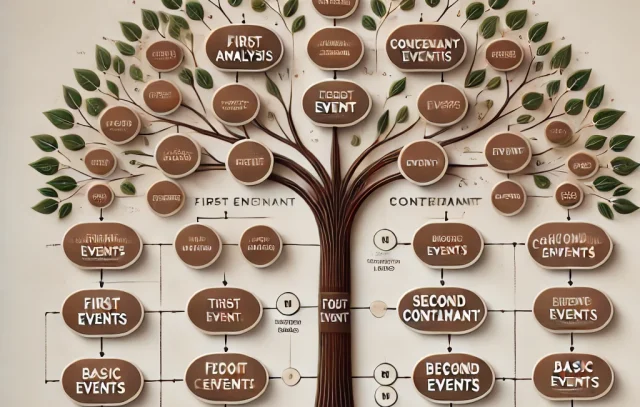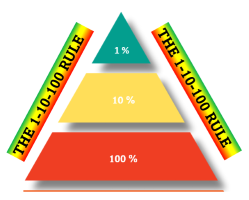Are you busy or effective?
You’ve probably experienced it too, that no matter how determinedly you work on something and invest a lot of time into it, you still don’t get to where you want to be. And then you ask yourself the question: What am I doing wrong?
Well, the situation you’re describing is often referred to as being ‘busy but not effective.’ In other words, you’re working, but there’s no result.
Let’s take a look at what the two concepts mean and what the difference is between being busy and being effective.
The difference between being busy and being effective lies in the quality and purpose of your actions rather than just the quantity of tasks you do.
- Being busy means you are constantly occupied with activities, but not necessarily in a way that advances your goals or priorities. You might be working on many things at once, but without clear focus or strategy, some tasks may not lead to meaningful outcomes.
- Being effective, on the other hand, involves prioritizing the right tasks and doing them in a way that brings about the desired result. It’s about working smarter, not harder. You focus on what truly matters and use your time and energy efficiently, often with greater impact.
So, never confuse a movement with progress. Just because you’re moving or doing things doesn’t mean you’re making progress toward your goals. Being effective is about making meaningful progress, not just being occupied. This also emphasizes how activity alone doesn’t guarantee you’re achieving what’s important.

To be more effective, it’s key to focus on strategic habits and mindset shifts that help you make the most of your time and energy. Here are some tips:
- Set Clear Goals
- Break down big tasks into smaller, manageable steps.
- Make sure your goals are specific, measurable, attainable, relevant and time-bound (SMART goals).
- Prioritize Tasks
- Use techniques like the Eisenhower Matrix to distinguish between tasks that are urgent vs. important. Focus on what truly matters.
- Apply the 80/20 rule (Pareto Principle): 80% of your results come from 20% of your efforts.
- Time Blocking
- Schedule specific blocks of time for different activities or tasks.
- This helps reduce distractions and ensures you’re staying focused on one task at a time.
- Limit Distractions
- Turn off notifications, put your phone on silent to stay in a focused zone.
- Set up a quiet or dedicated workspace to minimize interruptions.
- Use Productivity Tools
- Set up automated reminders or use time-tracking apps to help you stay aware of how you’re spending your time.
- Don’t Burn Out – Take breaks
- Take breaks, use the Pomodoro Technique (work for 25 minutes, then take a 5-minute break).
- Regular breaks help maintain focus and prevent mental fatigue.
- Delegate or Outsource
- If possible, delegate tasks that others can do. This frees up your time for higher-priority work.
- Consider outsourcing tasks that are outside your expertise to save time and effort.
- Keep a Healthy Routine
- Make sure to get enough sleep, exercise, and maintain a healthy diet. Your physical health plays a huge role in how productive you can be mentally.
- Review and Reflect
- At the end of the day or week, take a moment to reflect on what you accomplished and adjust your approach for the next time.
- Regularly evaluate whether your tasks align with your bigger goals and adjust accordingly.
- Stay Consistent
- Productive habits require consistency. Set a routine and stick to it, even when motivation dips.





